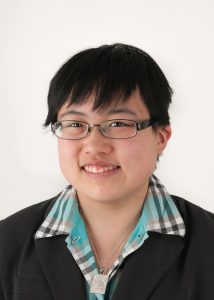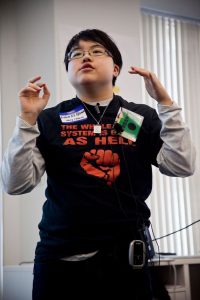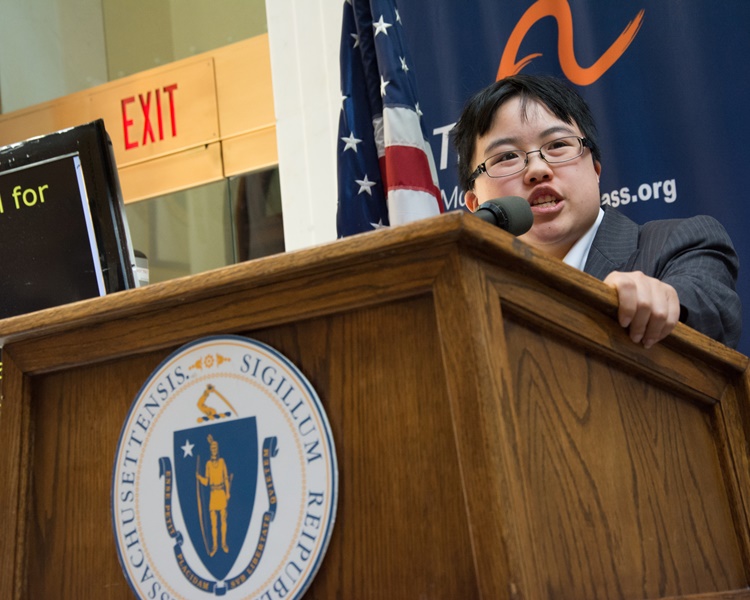What do queer people, disabled people, people of foreign origin and fat people have in common? How can these groups work together and learn from each other? These questions and others will be examined at the conference Disturbing Existence on March 3-4.
The keynote speaker will be Lydia XZ Brown, Autistic Hoya, an American activist and law student of Asian origin, adopted, autistic, disabled, asexual and genderqueer, known for their well defined and fresh perspective on marginalized groups’ struggle for human rights. GayIceland got in touch with them with a couple of questions which they were happy to answer.

What will be the main focus of your lecture?
“I will be discussing the deeply interconnected histories, collective trauma, and current experiences of disabled people, queer people, asexual people, and trans people, within a disability justice framework for practice and community building.”
What do queer people, disabled people, people of foreign origin and fat people have in common? How can these groups work together and learn from each other?
“All marginalized people, including queer, disabled, foreign, and fat people, share some experiences, and definitely patterns of being marginalized or targeted. That is not to say all marginalization or oppression is the same, it’s not. For example, being tokenized, being erased, having labour demanded or expected from us, especially unpaid labour, being dehumanized, being presumed incompetent, etc.
Working together requires firstly recognizing that many people live at the intersections. That they are fat and disabled; queer and of foreign origin; fat, queer and disabled etc. and so these groups are not separate or mutually exclusive.
“We all have limited knowledge and experiences, and movements aiming to be truly intersectional have to keep in mind multiple types of access and participation to prevent simply reproducing patterns of exclusion and marginalization.”
Secondly, it requires recognizing that we all have limited knowledge and experiences, and that movements aiming to be truly intersectional have to keep in mind multiple types of access and participation to prevent simply reproducing patterns of exclusion and marginalization. For example, claiming to be in solidarity with queer people, but shaming sex workers; or claiming to be in solidarity with disabled people, but only asking non-disabled parents of disabled children to give speeches at a rally.”
Different forms of oppression are connected
One of the concepts that you put emphasize on is “intersectionality”, a term which many people think is quite revolutionary. How would you explain it?
“The term intersectionality was invented by black scholar-activist Kimberlé Crenshaw to describe the specific oppression she experiences as a black woman, which is distinct from the sexism experienced by white women or the racism experienced by black men, and is not merely the two added together but something particular on its own.

Since Crenshaw first coined the term, it has come to mean intentional, conscious understanding of how people with intersected lives experience compounded and new oppressions specific to those intersections, but will always remain rooted in intersected black women’s experiences.”
While many people celebrate the concept of intersectionality some people have been very critical of it, both within the queer society and feminist movement. People worry that by focusing so much on what different groups have in common the individuality of each group is lost and that unique issues will suffer. What do you have to say about suh criticism?
“That criticism completely misconstrues and misunderstands intersectionality. It conflates “intersectionality” with the pithy, ultimately meaningless slogan, “same struggle, different difference”.
“Some people are excited and validated to learn about my ideas and work. Other people are frustrated and uncomfortable. Still others are just pissed off.”
Intersectionality is not about claiming that all oppressions are the same, or that all oppressed groups have the same experiences. It is about recognizing that a low-income Latina Muslim transwoman without any disabilities has a fundamentally different experience with her oppressions from, say, a wealthy black Christian cis-gender man with multiple disabilities.
Intersectionality calls us to understand both patterns of oppression that cut across multiple identities and distinct and particular manifestations of oppression that all marginalized people do not experience. It is about recognizing how different forms of oppression connect to one another and help perpetuate one another, not trying to conflate them.”
Misogyny, racism and ableism still endemic in Iceland
Where and when did your interest in these subjects begin?
“I have always had a yearning for justice and felt a call to work for it here on earth. Becoming politicized about being autistic, and then disabled as a cross-group identity, spurred along the process.”
How are your ideas generally received?
“To give the tried and true law school answer: It depends. Some people are excited and validated to learn about my ideas and work. Other people are frustrated and uncomfortable. Still others are just pissed off.”

Tell us about your role in the conference? What will you talk about and what will the workshop be about?
“I’ve been asked to give a keynote for the conference, and to lead a half-day training/workshop session for activists and organizers afterward.”
Are you familiar with the situation of these matters here in Iceland? What do you know about Iceland?
“I can’t claim to be an expert, because I’m not! My experiences are rooted in the U.S., but I am intentional about seeking knowledge and wisdom from individuals and communities outside my home country.
I am aware that Iceland is widely considered to be a feminist and queer utopia with very little social problems, but that that public image, while bolstered by progressive laws on issues like same-gender marriage and equal pay, is also somewhat superficial, with seriously systemic misogyny, racism, and ableism still endemic in Iceland as well. I am excited to learn more about the situation on the ground in Iceland from the activists at the conference!”
“I am aware that Iceland is widely considered to be a feminist and queer utopia with very little social problems, but that that public image … is also somewhat superficial …”
Finally, what will you be doing here besides taking part in the conference?
“While in Iceland, I will also hopefully have a chance to see the areas within and around Reykjavik – and hopefully catch a glimpse of the Northern Lights.”


